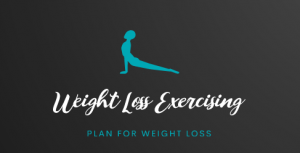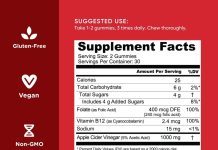Looking to bulk up and gain some muscle? We’ve got you covered. In this article, we’ll explore a range of tips and strategies that will help you achieve your goals of healthy weight gain and muscle development. Whether you’re a beginner or a seasoned gym-goer, we’ll provide practical advice and insights to help you on your fitness journey. So, if you’re ready to transform your physique and boost your strength, let’s dive right in!
Review contents
Developing a Healthy Diet
Eating a healthy and balanced diet is crucial for gaining weight and building muscle. To start, it’s important to determine your caloric needs. This can be done by calculating your basal metabolic rate (BMR) and then adding calories to create a surplus. This surplus is necessary for gaining weight. However, it’s important not to eat excessive amounts of unhealthy foods, such as processed snacks or sugary drinks. By focusing on whole foods, such as fruits, vegetables, lean proteins, whole grains, and healthy fats, you can fuel your body with the nutrients it needs to support muscle growth.
It’s also important to pay attention to your macronutrient intake. Macronutrients, including carbohydrates, proteins, and fats, each play a vital role in supporting your overall health and fitness goals. Carbohydrates provide energy, proteins are essential for building and repairing muscle tissue, and fats help with hormone production and overall function. Balancing these macronutrients will ensure that your body has the necessary resources to build muscle while also maintaining optimal health.
Furthermore, prioritizing protein intake is crucial for muscle growth. Protein is the building block of muscle, and consuming enough of it is essential for repair and growth. Aim to include protein-rich foods in each meal, such as lean meats, poultry, fish, eggs, dairy products, legumes, and tofu. If you struggle to meet your protein needs through whole foods alone, protein powders can be a convenient and effective option.
Designing an Effective Exercise Routine
In addition to a healthy diet, designing an effective exercise routine is key to gaining weight and building muscle. Incorporating resistance training into your workouts is essential. Resistance training, such as weightlifting or using resistance bands, helps stimulate muscle growth by placing stress on your muscles. It’s important to gradually increase the intensity and weight of your workouts to challenge your muscles and encourage growth.
Choosing compound exercises is another important aspect of an effective exercise routine. Compound exercises involve multiple muscle groups and joints, allowing you to maximize your workout time and target multiple areas of your body. Examples of compound exercises include squats, deadlifts, and bench presses. By incorporating these exercises into your routine, you can work multiple muscle groups simultaneously, leading to more efficient and effective workouts.
Progressive overload is an essential principle of any exercise routine designed for muscle growth. This means gradually increasing the demands placed on your muscles over time. This can be done by increasing the weight or repetitions of your exercises, or by reducing rest periods between sets. By progressively challenging your muscles, you can stimulate growth and ensure continued progress.
While exercise is important, rest and recovery are equally crucial for muscle growth. Giving your body time to rest and repair is essential for optimal results. This includes getting enough sleep, allowing at least 48 hours of rest between resistance training sessions targeting the same muscle group, and incorporating active recovery techniques, such as foam rolling or stretching, to help reduce muscle soreness and promote recovery.
Including cardiovascular exercise in your routine is also beneficial for overall health and fitness. Cardiovascular exercise, such as jogging, cycling, or swimming, improves cardiovascular health, increases endurance, and can aid in weight management. Aim to incorporate cardiovascular exercise into your routine a few times a week, but be cautious not to overdo it, as excessive cardio can hinder muscle growth if not balanced with adequate nutrition and recovery.
Supplementation
While a healthy diet and exercise should be the foundation of any weight gain and muscle building journey, supplementation can play a supportive role. Understanding the role of supplements is important to ensure you make informed choices. Supplements are not meant to replace a healthy diet, but rather can provide additional nutrients or support specific fitness goals.
Identifying essential supplements is key. For most individuals, a well-balanced diet should provide all the necessary nutrients. However, there are some situations where supplementation may be beneficial. For example, if you have specific dietary restrictions or are unable to consume certain food groups, you may need to supplement to ensure you’re meeting your nutritional needs. It’s important to consult with a healthcare professional or registered dietitian to determine if supplementation is necessary for you.
Creatine is a supplement that has been shown to enhance strength and muscle mass in some individuals. It works by increasing the production of adenosine triphosphate (ATP), which is the primary source of energy for muscle contractions during high-intensity exercise. While creatine can be effective for some people, it may not be necessary for everyone. Consulting with a healthcare professional is important before starting any new supplement.
Protein powders can be a convenient way to increase protein intake, especially for those who struggle to meet their needs through whole foods alone. There are various types of protein powders available, such as whey, casein, and plant-based options like pea or soy protein. Choosing a protein powder that fits your dietary needs and preferences is important.
Before incorporating any supplements into your routine, it’s essential to consult with a healthcare professional, such as a registered dietitian or doctor. They can provide personalized guidance based on your specific needs and goals, ensuring that you choose supplements that are safe, effective, and appropriate for you.
Maintaining Consistency and Discipline
Maintaining consistency and discipline is crucial for long-term success in gaining weight and building muscle. Establishing realistic goals is the first step. Set specific, measurable, achievable, relevant, and time-based (SMART) goals that align with your overall objectives. By setting smaller, attainable milestones along the way, you can maintain motivation and track your progress effectively.
Creating a schedule is an effective way to stay consistent with your diet and exercise routine. Plan your meals and workouts in advance, and stick to a regular schedule as much as possible. This will help ensure that you’re consistently consuming the necessary nutrients and engaging in regular exercise to support your goals.
Tracking progress is essential to determine whether you’re moving in the right direction and to make adjustments as necessary. Keep track of your body measurements, such as weight, body fat percentage, and measurements of specific areas, such as your waist or arms. Regularly assess your strength and endurance by tracking your progress in the gym, such as the amount of weight lifted or the number of repetitions performed. This data can help you identify areas of improvement and make necessary modifications to your diet and workout routine.
Seeking support and accountability can also play a significant role in maintaining consistency and discipline. Share your goals with friends, family, or a workout buddy, and consider joining a fitness community or hiring a personal trainer who can provide guidance and support throughout your journey. Having someone to celebrate your successes with and hold you accountable can greatly increase your chances of staying on track.
Staying motivated is key to overcoming challenges and setbacks along the way. Find what motivates you personally, whether it be tracking your progress, rewarding yourself for reaching milestones, or finding inspiration from others who have achieved similar goals. By staying motivated and focused, you can maintain consistency and discipline, even when faced with obstacles.
Monitoring and Adjusting Approach
Monitoring and adjusting your approach is important to ensure continued progress and avoid plateaus. Tracking your body measurements, such as weight, body fat percentage, and measurements of specific areas, can provide valuable insights into your progress. If you’re not seeing the desired results, it may be necessary to reevaluate your diet and exercise routine and make necessary adjustments.
Assessing strength and endurance is crucial to determine if your workouts are effective. Keep track of the amount of weight lifted, the number of repetitions performed, and the level of difficulty experienced during each exercise. If you’re not progressing or feeling challenged, it may be time to adjust your workout routine by increasing the weight, changing exercises, or modifying the number of sets and repetitions.
Understanding plateaus is important to avoid frustration and maintain motivation. Plateaus are periods where progress seems to stall or slow down, despite consistent effort. It’s important to remember that plateaus are a natural part of any fitness journey. They often occur when the body adapts to current training or dietary stimuli. To overcome a plateau, consider changing up your exercise routine, increasing the intensity of your workouts, or adjusting your calorie intake.
Reevaluating your diet and exercise routine may be necessary if you’re not seeing the desired results. This could involve seeking guidance from a registered dietitian or personal trainer to identify potential areas for improvement. They can help assess your current approach, make necessary adjustments, and provide personalized recommendations to help you overcome plateaus and continue making progress.
If you’re unsure about how to make adjustments or navigate through plateaus, seeking professional guidance is important. A registered dietitian can provide personalized nutritional advice, while a personal trainer or sports medicine specialist can help optimize your exercise routine. Additionally, getting a thorough health check-up and receiving medical clearance is important to ensure that your body is capable of handling the demands of your chosen exercise regimen.
Considering Possible Health Concerns
While a healthy approach to gaining weight and building muscle is generally safe for most individuals, it’s important to consider possible health concerns that may impact your journey. Certain health conditions, such as thyroid disorders or hormonal imbalances, can affect weight gain and muscle growth. It’s important to manage these conditions with the guidance of a healthcare professional.
Digestive issues, such as irritable bowel syndrome (IBS) or food intolerances, can also impact your ability to gain weight and build muscle. If you’re experiencing digestive issues, it may be necessary to work with a healthcare professional or registered dietitian to identify trigger foods and develop a plan that supports your specific needs.
Hormonal imbalances, such as low testosterone or high cortisol levels, can affect weight gain and muscle growth. If you suspect hormonal imbalances, it’s important to consult with a healthcare professional who can conduct the necessary tests and provide appropriate treatment or guidance.
Exploring allergies or intolerances is important to ensure that your diet supports your health and fitness goals. If you suspect food allergies or intolerances, it’s important to work with a healthcare professional or registered dietitian to identify trigger foods and develop a plan that supports your specific needs.
Consulting with a medical professional is important to address any underlying health concerns or to rule out any medical conditions that may impact your ability to gain weight and build muscle. They can provide personalized guidance based on your specific health history and help ensure you’re taking the necessary precautions to protect your well-being.
Avoiding Unhealthy Practices
When aiming to gain weight and build muscle, it’s important to avoid unhealthy practices that can do more harm than good. Steering clear of crash diets is crucial. While certain diets may promise quick results, they often involve severe calorie restrictions, which can negatively impact your metabolism, overall health, and well-being. Instead, focus on sustainable and balanced approaches that prioritize whole foods and gradual weight gain.
Avoiding the use of steroids or performance-enhancing drugs is essential for long-term health and well-being. These substances can have serious side effects and pose significant risks to your health. Instead, focus on natural methods, such as proper diet, exercise, and recovery, to achieve your goals.
Understanding muscle dysmorphia is important for promoting a healthy body image and mental well-being. Muscle dysmorphia is a psychological disorder characterized by an excessive preoccupation with muscularity and a distorted perception of one’s own body. If you suspect you or someone you know may be struggling with muscle dysmorphia, seeking professional help is crucial to address the underlying issues and promote overall well-being.
Not overtraining is essential for avoiding injuries and maintaining progress. While regular exercise is important, overtraining can lead to fatigue, decreased performance, and increased risk of injury. It’s important to listen to your body, incorporate rest days into your routine, and give yourself time to recover.
Promoting overall well-being is key when working towards weight gain and muscle growth. This includes prioritizing mental health, practicing self-care, and finding a healthy balance between your fitness goals and other areas of your life. Remember that a healthy body is not just about physical appearance, but also about feeling good both physically and mentally.
Seeking Professional Guidance
Seeking professional guidance is important to ensure that you’re following a safe and effective approach to gaining weight and building muscle. Consulting with a registered dietitian can provide personalized nutritional guidance based on your specific needs, preferences, and goals. They can help create a meal plan that ensures you’re consuming the necessary nutrients to support muscle growth while maintaining overall health.
Hiring a personal trainer can also be beneficial, especially if you’re new to exercise or need guidance in designing a workout routine that targets your specific goals. A personal trainer can provide personalized instruction, guidance on proper form, and help to ensure that you’re performing exercises correctly and safely.
Seeing a sports medicine specialist is important, especially if you have specific health concerns or injuries that need to be taken into consideration. They can provide specialized guidance and treatment options to help you overcome any limitations or challenges that may arise.
Getting a thorough health check-up is important before starting any new fitness program, especially if you have pre-existing health conditions or concerns. This will help ensure that you’re physically capable of engaging in the recommended activities and that there are no underlying issues that need to be addressed.
Receiving medical clearance is crucial for those with existing health conditions or concerns. It’s important to consult with a healthcare professional to determine if any modifications or precautions need to be taken to ensure your safety and well-being during your weight gain and muscle building journey.
Understanding Genetic Factors
Genetic factors play a role in how each individual responds to weight gain and muscle-building efforts. It’s important to consider genetic predisposition when setting expectations for your specific goals. Some individuals may naturally have a higher or lower metabolism, which can affect the rate at which they gain weight or build muscle.
Understanding different body types is important for tailoring your approach to weight gain and muscle building. The three main body types are ectomorphs, mesomorphs, and endomorphs. Ectomorphs tend to have a lean and slender build, mesomorphs have a more athletic and muscular build, while endomorphs tend to have a higher body fat percentage and a rounder silhouette. Each body type may have different considerations when it comes to calorie intake, macronutrient distribution, and exercise selection.
Genetic limitations can also impact your ability to gain weight or build muscle. Some individuals may naturally have a harder time putting on weight or building muscle due to their genetic makeup. While genetics can play a role, it’s important to focus on what you can control, such as following a healthy diet, engaging in regular exercise, and staying consistent with your routine.
Leveraging individual advantages is important when working towards your weight gain and muscle-building goals. Each person has unique strengths and attributes that can be utilized to their advantage. For example, some individuals may naturally have a higher level of strength, while others may have good endurance or flexibility. Understanding and leveraging your individual advantages can help you tailor your approach to fitness and maximize your results.
Being patient with results is crucial when considering genetic factors. Gaining weight and building muscle takes time and consistency. It’s important to focus on the progress you’re making rather than comparing yourself to others. By staying committed and patient, you can achieve your goals in a healthy and sustainable manner.
Adapting Lifestyle Habits
When aiming to gain weight and build muscle, it’s important to adapt lifestyle habits that support your overall health and well-being. Start by getting enough sleep. Adequate sleep is essential for muscle recovery, hormone regulation, and overall health. Aim for 7-9 hours of quality sleep each night to ensure optimal recovery and progress.
Stress management is also important when engaging in intense workout routines. Chronic stress can negatively impact your ability to gain weight and build muscle. Find healthy coping mechanisms for managing stress, such as meditation, deep breathing exercises, or engaging in activities you enjoy.
Hydration and water intake is crucial for overall health and performance. Staying hydrated helps maintain proper bodily functions, aids in digestion, and supports optimal muscle function. Drink water throughout the day and during workouts to maintain hydration levels.
Avoiding smoking and excessive alcohol consumption is important for overall health and athletic performance. Smoking can impair lung function and hinder progress, while excessive alcohol consumption can negatively impact muscle recovery and overall health. Limit or avoid these habits to ensure that your body is functioning at its best.
Developing a positive mindset is essential for maintaining motivation and enjoying the process of gaining weight and building muscle. Embrace self-love and focus on celebrating small victories along the way. Surround yourself with positive influences and create an environment that supports your goals and well-being.
In conclusion, gaining weight and building muscle in a healthy manner requires a comprehensive approach that combines a balanced diet, effective exercise routine, supplementation if necessary, consistency, monitoring and adjustment, consideration of health concerns, avoidance of unhealthy practices, seeking professional guidance when needed, understanding genetic factors, and adapting lifestyle habits. By following these guidelines and maintaining a positive mindset, you can achieve your weight gain and muscle-building goals while prioritizing your overall health and well-being.



























